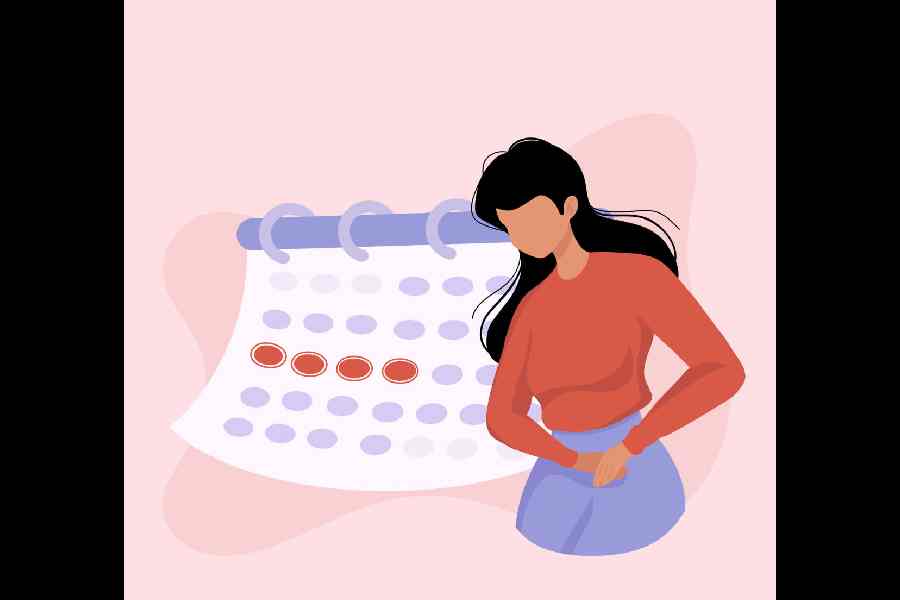Women get periods or menstruate, a normal physiological phenomenon, which indicates that their reproductive organs are now physically ready for reproduction. Every month, once menstruation sets in, the uterus develops a lining conducive for the implantation and growth of a baby. If pregnancy does not occur, the uterus sheds its lining made up of blood and cells.
Folklore has blamed menstruation for many ills that befall the family. Women are not unclean or toxic at this time, nor does food they cook get contaminated or spoilt. Women may be isolated, they are considered “unclean”, they may be encouraged to take leave of absence from school, activities and work. This places them at a disadvantage academically and professionally, as men do not take off a couple of days each month.
Menarche is the age at which a woman
first menstruates. It varies widely depending on genes, the nurturing environment, body stature, body mass index (BMI) and socioeconomic status. It can occur anywhere from the age of 11 to the age of 16. It is occurring at younger ages all over the world. Better health and fast food are both blamed for this phenomenon.
The time of menstruation can vary, with cycles being anywhere from 24-45 days. The majority of women have 28-day cycles, which means they menstruate two days earlier each month. When a woman consistently has a 45-day cycle, the date can vary so much that anxiety sets in. She feels her periods are irregular. Bleeding can continue anywhere from two to seven days.
If periods are consistently heavy and last long, there is a danger of the woman slowly becoming anaemic. Hormone pills like oral contraceptives, progesterone-only pills or an IUD (copper T, loop) can change both the date of menstruation and the flow, making it light or heavy.
The hormonal changes associated with menstruation can cause other changes. The body may feel bloated, the breasts tender, acne may be aggravated, the appetite may increase, there may be mood swings and cramps in the lower back and abdomen.
Periods are usually associated only with mild, tolerable lower abdomen or back discomfort, but the pain (dysmenorrhea) can be severe enough to interfere with day-to-day activities. Primary dysmenorrhea usually occurs during the teenage years or early twenties. Investigations and scans usually do not reveal any pelvic problems. This pain usually responds to analgesics and NSAIDs (non-steroidal anti-inflammatory drugs) like ibuprofen or mefenamic acid. These tablets do not cause side effects even if taken every month. Physically active women who regularly do aerobic exercise and yoga are less likely to suffer from debilitating dysmenorrhea.
Secondary dysmenorrhea occurs suddenly in older women who did not have pain earlier. It may be associated with other symptoms like the passing of clots, irregular cycles, swelling in the abdomen, frequency of urine or white discharge. It has to be investigated with blood tests and imaging.
Menstrual hygiene is very important. Sanitary pads need to be changed once every six hours, and tampons every two hours. Even if you have a heavy flow, it is not recommended that you use two pads or a combination of tampons and pads. Rashes can occur on the inner thigh if wet pads are left in place for long periods of time. Ointments and medicated powders are available to help with this condition. It is very important to change tampons regularly as they can become contaminated with bacteria if left for long periods of time, causing a dangerous and sometimes fatal condition called “toxic shock syndrome”. Cloth if used, should be changed with the same frequency and washed thoroughly with a detergent. Menstrual cups are now available in India. They are hygienic and environmentally friendly. They can be used for 6-8 hours.
Remember menstruation is normal. To remain healthy exercise regularly. Take iron supplements to prevent anaemia if indicated.
The writer has a family practice at Vellore and is the author of Staying Healthy in Modern India. If you have any questions on health issues please write to yourhealthgm@yahoo.co.in










